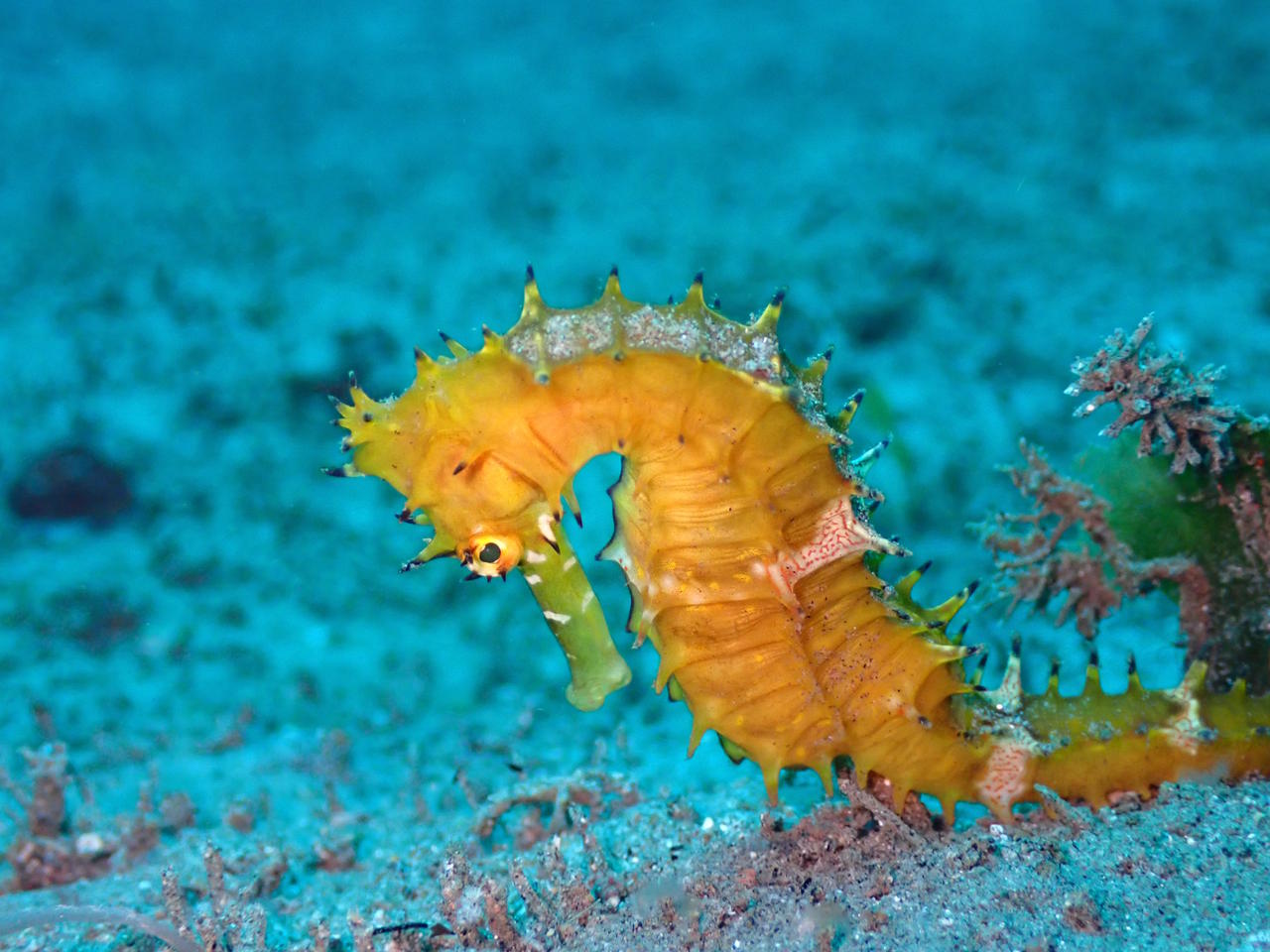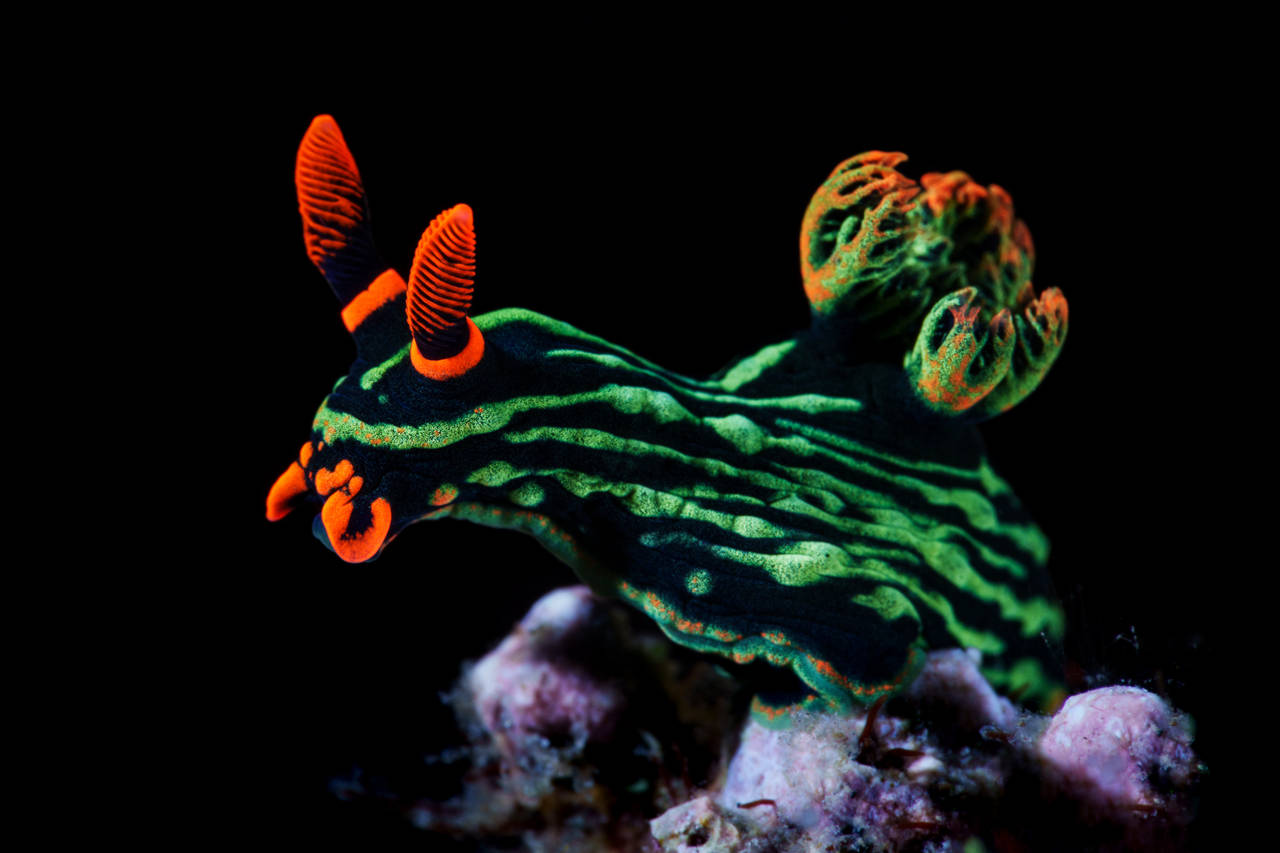Co-founded by the owners of Atmosphere, the Institute for Marine Research (IMR) is a grassroots non-profit organization based in Dauin. IMR focuses on long-term and fine-scale research to protect coastal marine ecosystems in Dauin. This month, we invited them to write an article for us to feature on our Atmosphere blog. Keep reading to learn about IMR and how atmosphere guests can plant their own coral fragments during our weekly coral restoration dives!
Discover the Underwater Wonders with the Institute for Marine Research in Dauin, Philippines
When you think of a paradise getaway, the Philippines often comes to mind with its stunning beaches, vibrant marine life, and crystal-clear waters. However, there’s more to these islands than meets the eye. Nestled in the heart of the Coral Triangle, the Institute for Marine Research (IMR) in Dauin, Negros Oriental, is a beacon of hope for marine conservation. Join us as we dive deeper into the critical work of IMR and learn how their ground-breaking research and conservation efforts are making waves for a healthier ocean.
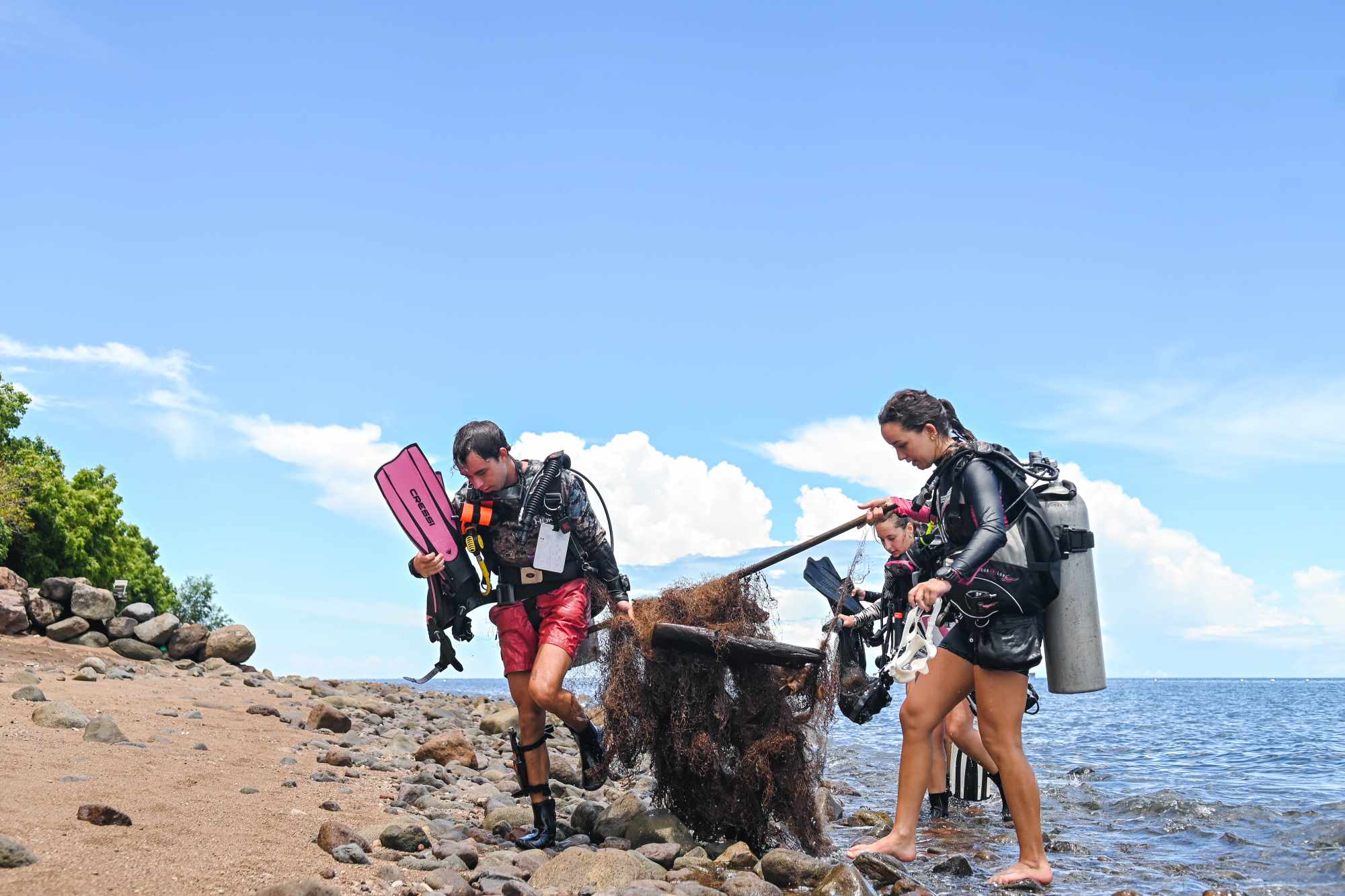
IMR takes part in regular clean-up dives to keep our reefs clean! Photo by RTS.images
Why are coral reefs so important?
The Coral Triangle is home to 76% of the world’s coral species and 37% of the world’s coral reef fish species. It is a vital marine biodiversity hotspot that needs our protection. Coral reefs are often referred to as the “rainforests of the sea” because of their incredible biodiversity. They provide essential habitat for numerous marine species, support fisheries, protect coastlines from erosion, and contribute to the livelihoods of more than 130 million people who depend directly on the marine natural resources of the Coral Triangle. Healthy coral reefs are vital for maintaining the balance of marine ecosystems and ensuring the well-being of coastal communities.
Why the Institute for Marine Research is a Game-Changer
IMR stands out with its unique approach to marine conservation through a holistic model focusing on research, development, and transformation. Their mission is to conduct in-depth research on coastal ecosystems, educate local communities, and implement conservation strategies that are locally driven and globally relevant.
How IMR’s Research Benefits Global Conservation Efforts
IMR’s work is not just important for the Philippines; it has global implications. With scientists actively publishing data and findings in high-quality scientific publications, IMR contributes to the broader understanding of coral reef dynamics and conservation strategies. Their research helps inform policies and conservation efforts, making a significant impact on marine biodiversity worldwide. For instance, IMR’s data monitoring the effects of anthropogenic effects of climate change and pollution on coral and fish populations can aid in predicting how changes to the environment will impact coral reefs globally. This knowledge is crucial for developing adaptive management strategies that can be implemented in other regions facing similar threats.
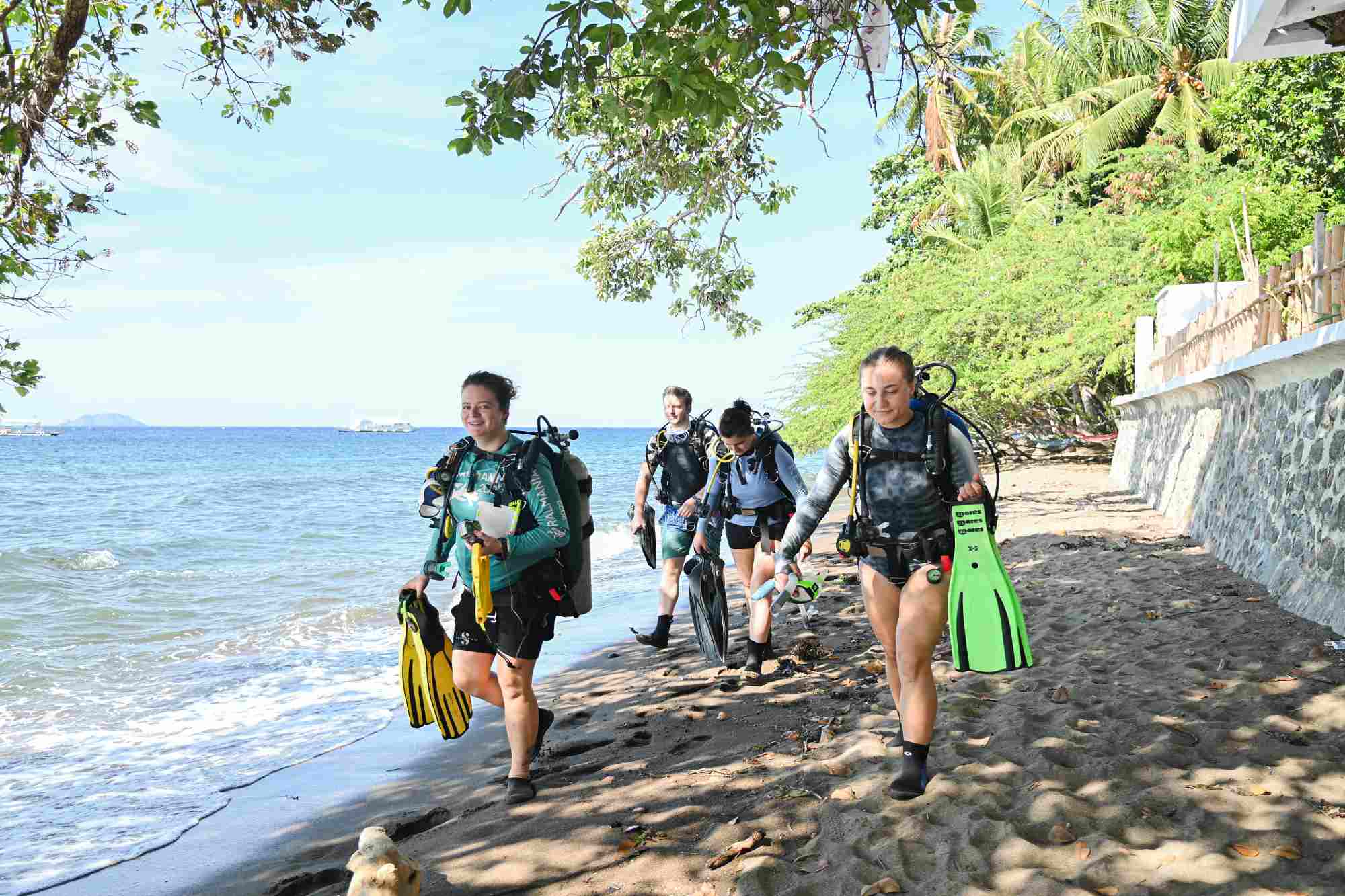
IMR’s work is not just important for the Philippines; it has global implications. Photo by RTS.images
The Role of Education and Outreach in Conservation
IMR places a strong emphasis on education and outreach, understanding that lasting conservation success relies on informed and engaged communities. They conduct environmental literacy programs, and community outreach activities to spread awareness about the importance of marine conservation. IMR has started a partnership with Bata Ng Calabnugan orphanage to create the Reef Rangers program that enables young people to learn marine science, conservation, and the skills required to be eco-warriors. By educating the younger generation and local stakeholders, IMR ensures that conservation efforts are sustainable and continue to grow over time.
Top 5 Fascinating Projects by the Institute for Marine Research
1. Dauin Municipality Long-Term Reef Monitoring Project
This project meticulously tracks changes in reef communities over time, helping to identify threats and develop effective conservation strategies. By monitoring reef health on a long-term basis, IMR can detect subtle changes in the ecosystem that might go unnoticed in short-term studies. IMR utilizes cutting-edge AI for the identification of the reef benthos including coral. This continuous monitoring is crucial for understanding the impact of both natural events and human activities on coral reefs.
2. Diver Operated Stereo Video System
This innovative technique allows researchers to accurately measure and monitor fish populations, providing crucial data for marine conservation. Unlike traditional methods, this system offers precise measurements of fish size and density, ensuring more accurate assessments of reef health. The data collected helps in understanding fish behavior, breeding patterns, and the overall health of fish populations, which are essential for maintaining balanced ecosystems.
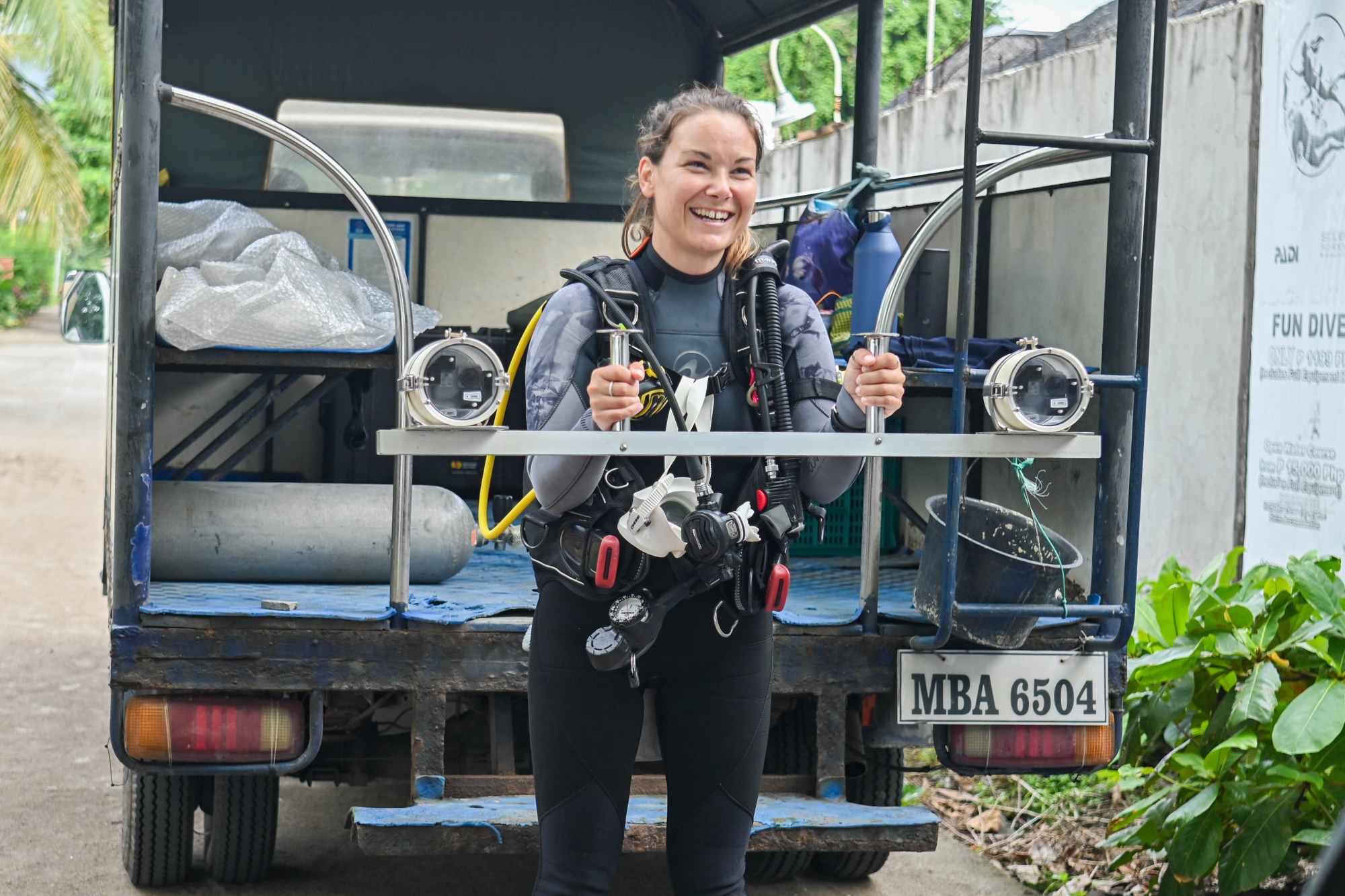
Divers use this stereo video system to accurately measure and monitor fish populations. Photo by RTS.images
3. 3D Reef Modelling
Using advanced technology, IMR creates three-dimensional models of coral reefs to understand their structure and health better, making conservation efforts more targeted and effective. These 3D models allow researchers to quantify the complexity of reef structures, which is vital for supporting diverse marine life in ways that strict coral cover does not account for. By visualizing the reefs in three dimensions, conservationists can pinpoint areas that require immediate attention and track the success of restoration efforts over time.
4. Impact Surveys and Ocean Monitoring
By conducting extensive surveys, IMR assesses coral bleaching, disease, and pollution, contributing to a comprehensive understanding of marine ecosystem health. These monitoring efforts are essential for identifying the root causes of coral decline and developing strategies to mitigate these impacts. Regular impact surveys help track the effectiveness of conservation measures and adapt them as needed to ensure long-term sustainability. In addition to monitoring and reporting harmful impacts, IMR conducts crown of thorns sea star culls and trash clean-up dives to remove elements that are destroying the reef.
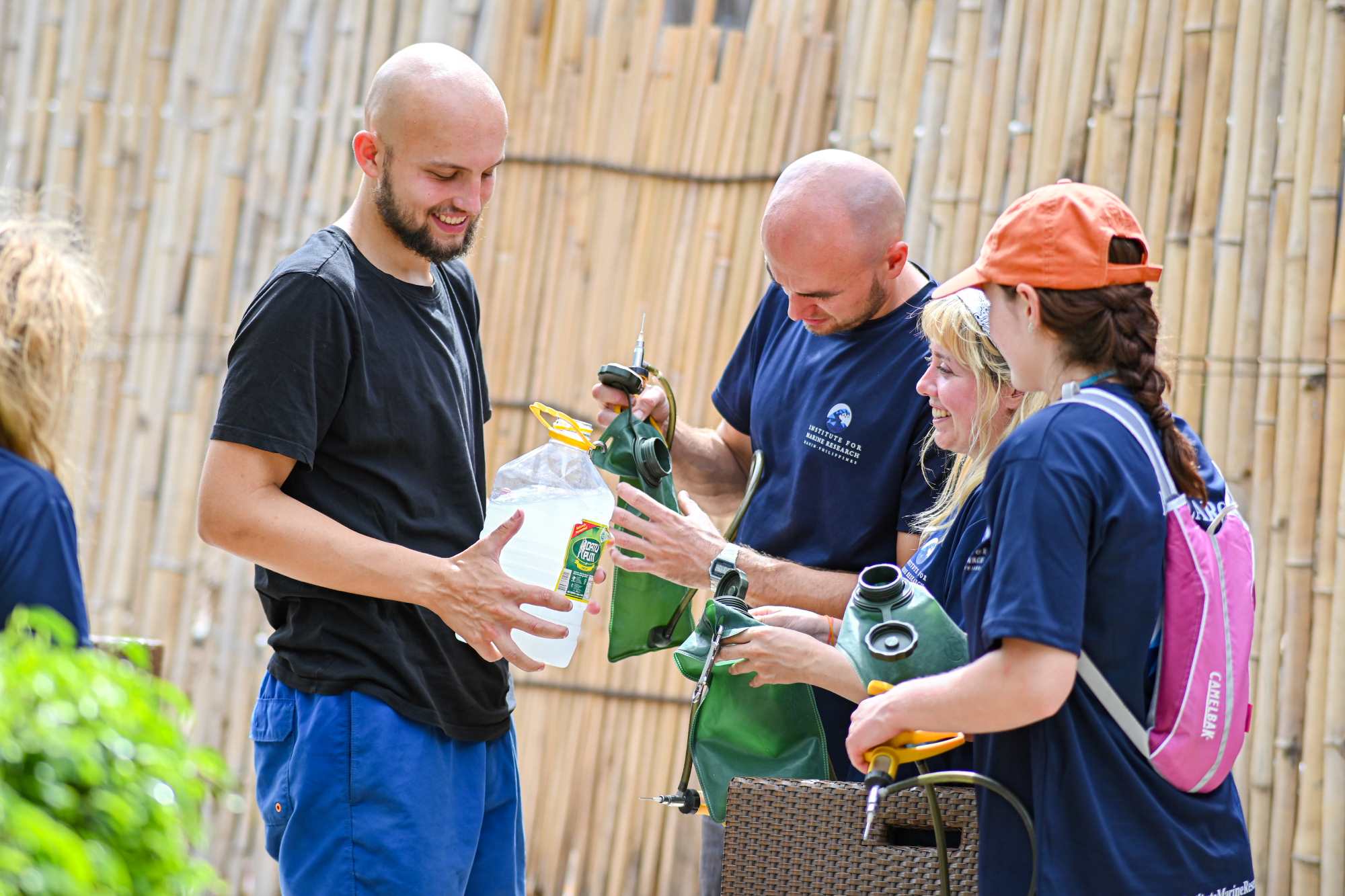
IMR conducts regular crown of thorns sea star culling dives. Photo by RTS.images
5. Functional Restoration and Growth Study (FRAGS)
IMR’s FRAGS initiative is a testament to their commitment to restoring marine ecosystems. This program focuses on rehabilitating previously failed artificial reef systems by cleaning artificial reef structures and replanting broken fragments of coral. The goal is to create a functional and healthy reef ecosystem that can support diverse marine life and promote ecological balance. Through the FRAGS initiative, IMR is not only restoring the health of coral reefs but also empowering divers to take an active role in marine conservation. This hands-on approach educates and engages residents and guests, creating a sustainable and lasting impact on the region’s marine ecosystems.
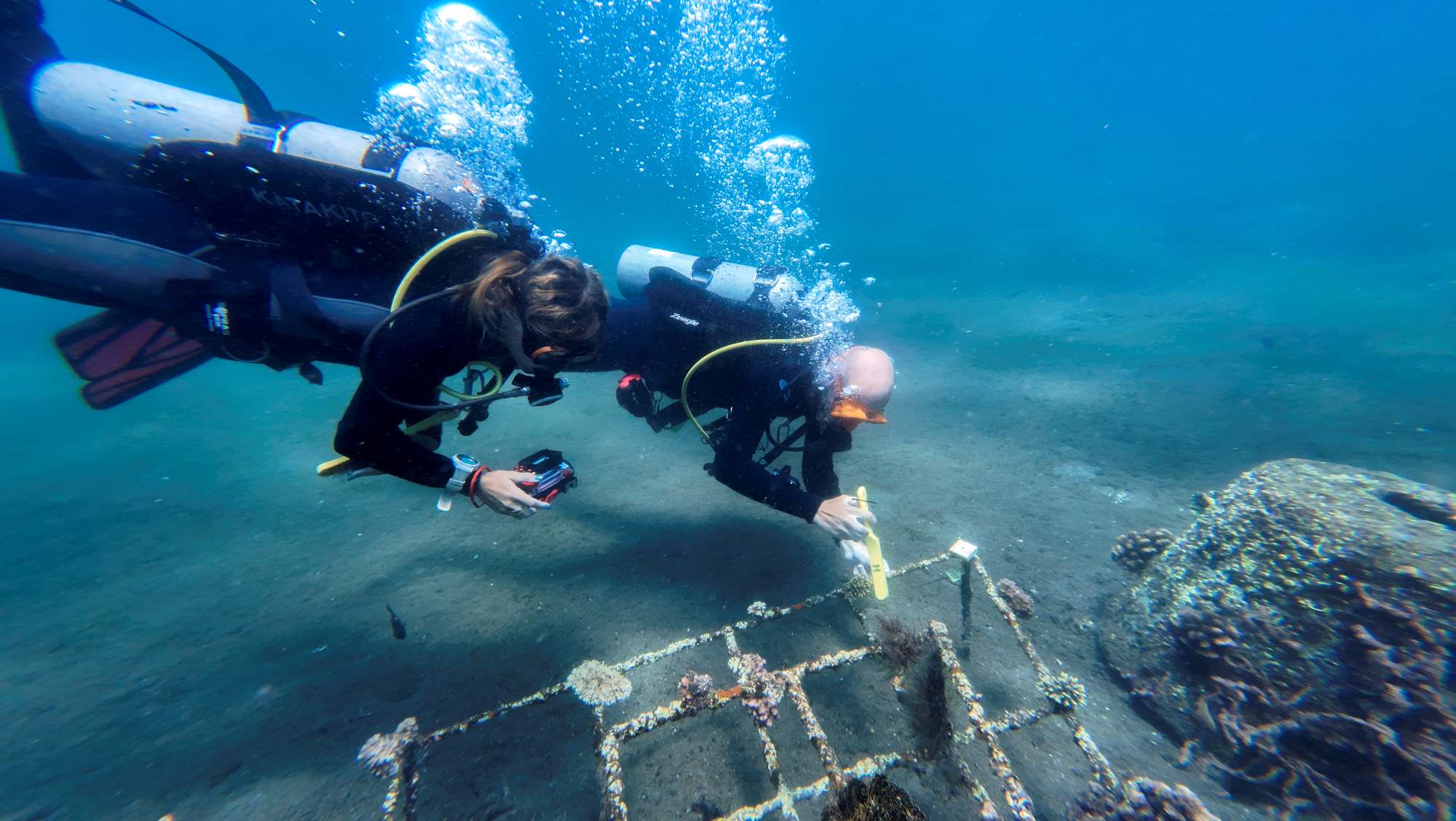
The coral restoration site in Dauin. Picture taken by Gary Perrenoud @thegreenodyssea
How You Can Get Involved
Feeling inspired? There are several ways you can contribute to the fantastic work being done by IMR:
- Join Their Research Team: If you’re passionate about marine biology, consider applying for a research assistantship or fellowship with IMR. Gain hands-on experience and make a real impact.
- Support Their Efforts: Donations to IMR help fund vital research and conservation projects, ensuring that they can continue their important work.
- Spread the Word: Share the mission and achievements of IMR with your network. Awareness is a powerful tool in the fight for marine conservation.
For more information on IMR’s projects and how you can get involved, visit their official website.
Join our weekly dive with IMR and plant your own coral fragments!
Have you ever wanted to contribute to marine conservation? We have recently partnered with the Institute for Marine Research (IMR) to give our guests the opportunity to contribute to their coral restoration project. The Functional Restoration and Growth Studies (FRAGS) project aims to restore coral reefs, by planting corals previously broken from a parent colony. Manually attaching them to a hard surface increases the likelihood of survival into an adult colony.
Every Thursday, certified divers at Atmosphere can join an informative presentation and a hands-on coral planting dive, both led by one of IMR’s marine biologists.
Contact dive@atmosphereresorts to book, and become a coral guardian!
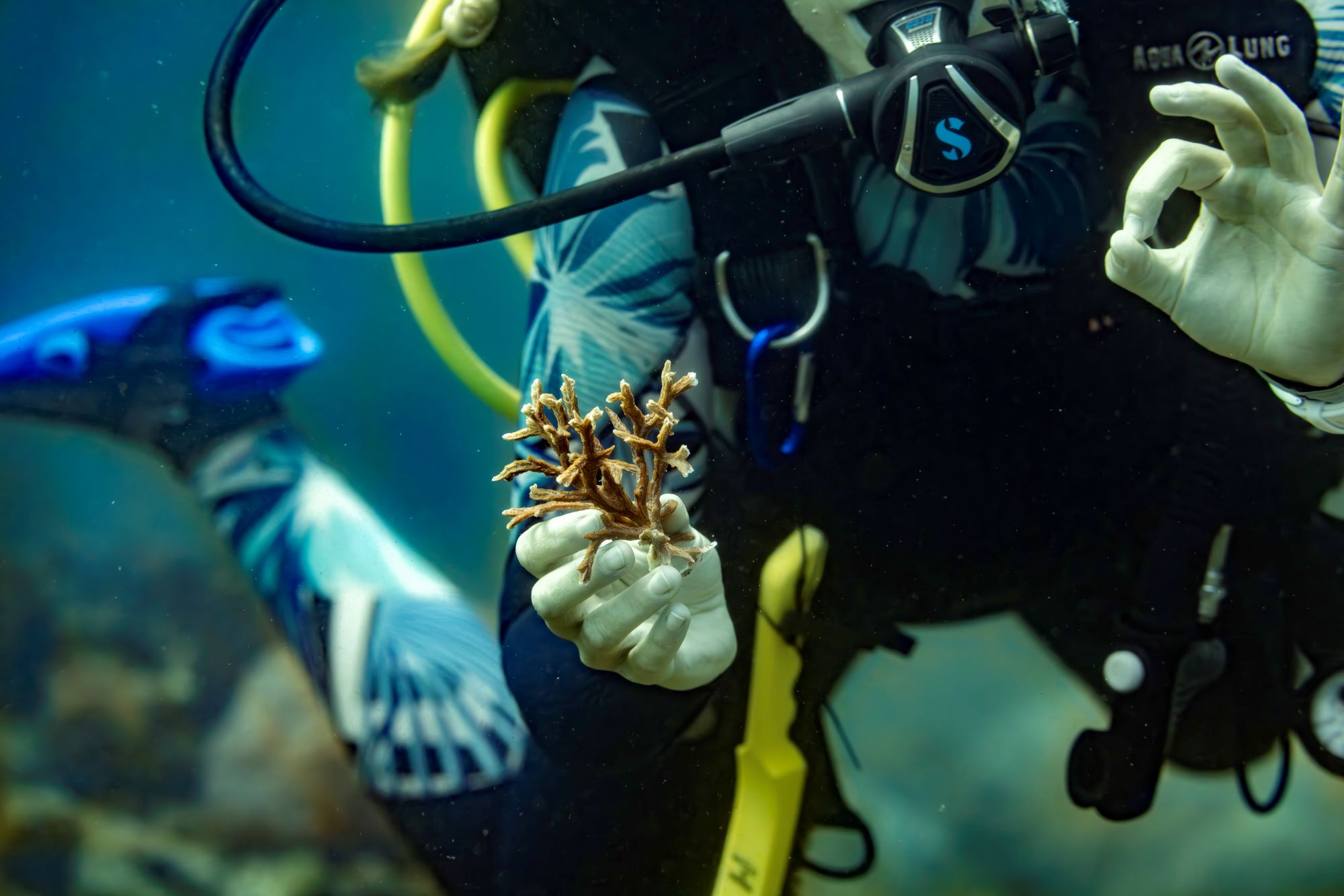
Join our weekly coral restoration dives with IMR, and this could be you! Picture taken by Gary Perrenoud @thegreenodyssea


